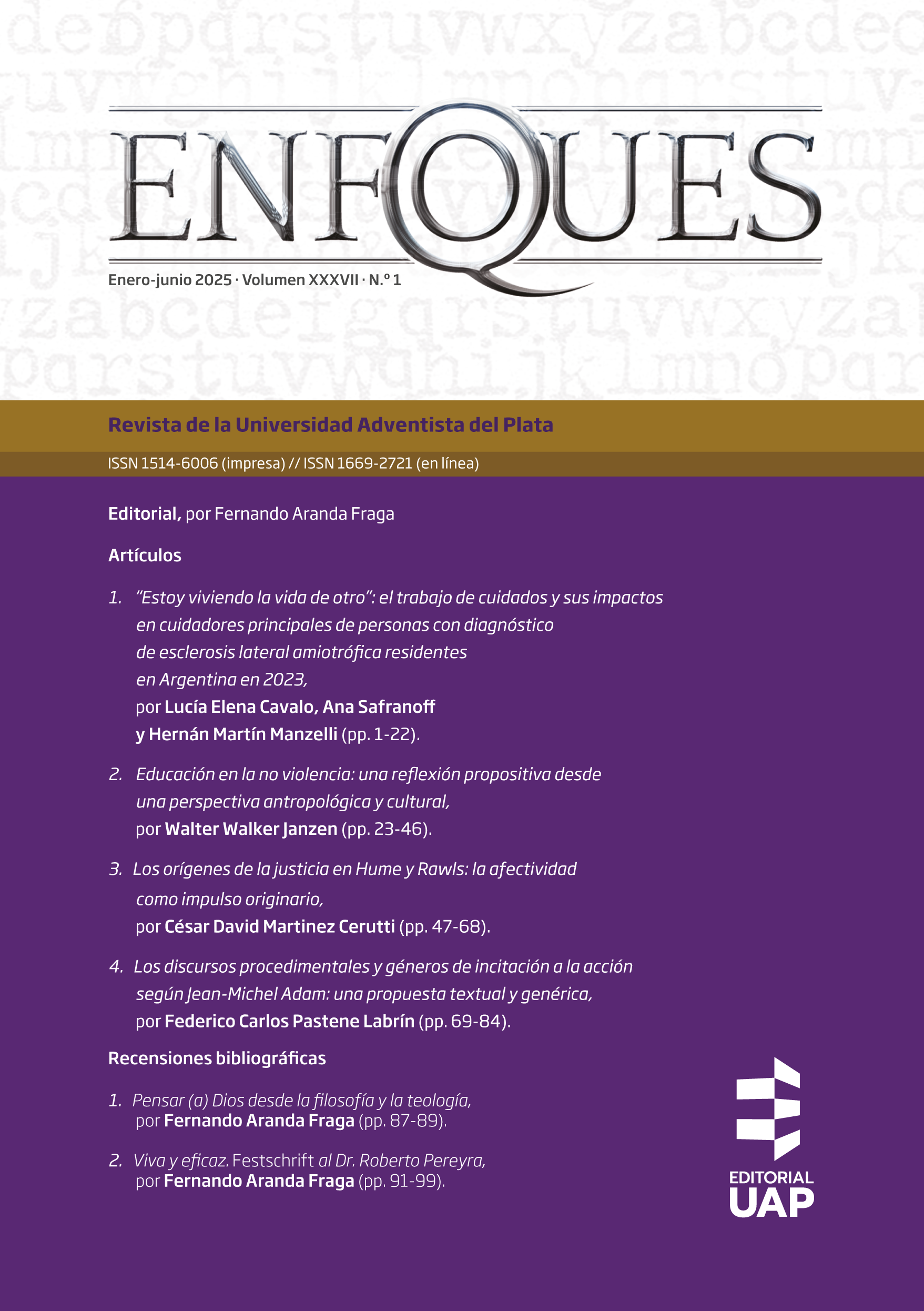The origins of justice in Hume and Rawls: Affectivity as the original impulse
la afectividad como impulso originario
DOI:
https://doi.org/10.56487/enfoques.v37i1.1215Keywords:
Sense of justice — Humanitym — Affectivity — Justice — MotivationAbstract
The aim of this article is to reflect on the relationship between the affective dimension and the origins of justice in the theories of Hume and Rawls. While the former postulated the feeling of humanity in his Research on the principles of morals, Rawls suggested the sense of justice when explaining this tendency in the third part of the Theory of Justice. Based on these considerations, in this work the affective dimension will be understood as an original impulse that justifies the tendency of human beings to organize and live in society. Such analysis seeks to establish the continuities and ruptures between the authors, as well as to investigate the influences that Hume’s philosophy has on the Rawlsian proposal.
Downloads
Downloads
Published
Issue
Section
License

This work is licensed under a Creative Commons Attribution-NonCommercial-ShareAlike 4.0 International License.





